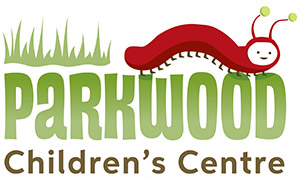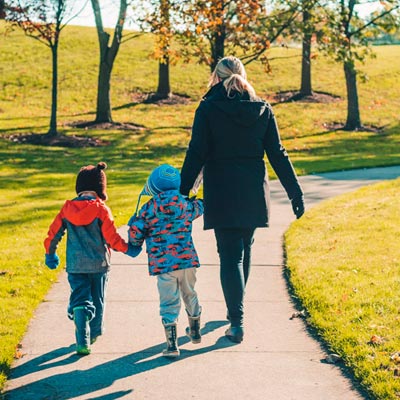Our Program
We believe all children have unique needs and that the daily schedule must be flexible to meet the individual needs of each child. We embrace the varied experiences of each family and strive to ensure each child has time to learn, to play, to establish relationships, to grow, to nourish themselves, to rest, to be active and to feel a sense of belonging. Our program is designed to implement these important elements into our daily schedule while achieving the important goals outlined in our Program Statement.
Our organization provides ongoing professional learning throughout the year for our employees. We access the many resources available in our community, including the resources available through the Ministry of Education. We strive to access resources from the international community to encourage deeper and more critical thinking about how young children learn best. We hope to share our learning and understandings with the families enrolled at our centre through regular communication, educational materials and learning workshops.
Our program statement has been developed in accordance with the four foundations of How Does Learning Happen? We want to ensure we are providing engaging opportunities for learning, to ensure the promotion of a sense of belonging, to enhance the well-being of children, families and staff members, and to support the expression of all in co-constructing knowledge.
We look forward to sharing our journey with our families and most importantly we look forward to sharing in your child’s journey through their early years. This is the time when your child will learn the most and we can’t wait to share in this experience.
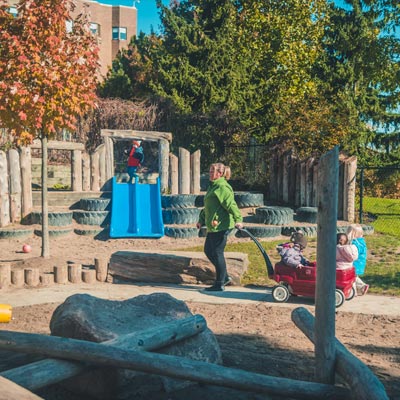
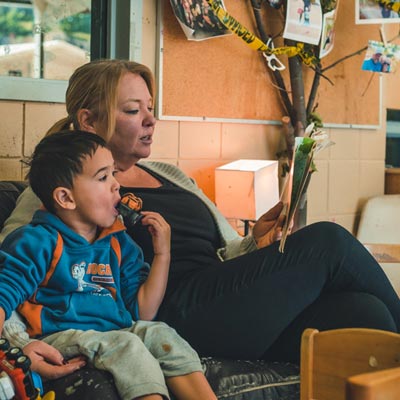
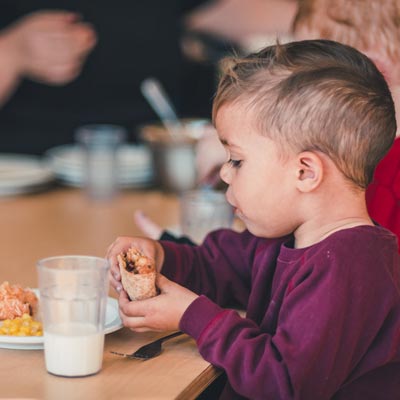
Current Evolutionary Goals for our Program:
1. Incorporate nature into our everyday programming with the children. Research indicates children need to have a close relationship with nature to nurture their mental health.
- Offer open ended nature based activities and nature based provocations indoors to inspire inquiry and exploration as we co-learn with the children.
- Nature hikes provided at least monthly for each program to enhance the well-being of children and staff.
- Participate in inter-generational gardening fostering knowledge of how we take care of ourselves by growing food that we prepare and eat.
- Reduce and minimize items in our program that are not made of natural materials.
- Ongoing professional learning to educate organization on the benefits of nature in our everyday lives, to learn how to bring nature indoors and how nature impacts well-being for all.
- To change our mindset to view the outdoors as our primary classroom and to invite families to join us through this journey.
- Offer engaging opportunities for children, staff and parents to explore our place in nature to promote a strong sense of well-being.
- To engage, as humans, in critical thinking and reflection around our relationship with the land, plants and animals.
2. Allow the children to take manageable risks to encourage healthy development in all areas including physical development, mental health including the promotion of independence and effective problem solving skills and social development by building self-confidence.
- Ongoing professional learning regarding the importance of risk-taking in young children.
- Educators, students and volunteers mentored through this change in mindset to understand the importance of risk-taking and problem solving for children and ourselves in the development of self-regulation.
- Educators are encourage to observe and reflect on daily interactions to promote child-initiated actions and responses.
- Children learn through manageable risks to be safe, to understand their limitations, and to promote well-being with one another.
- Viewing the children as competent and capable through the promotion of self-regulation skills and the building of independence in all children.
- Children have child-initiated opportunities to problem solve under the tutelage of skillfully observant Educators.
- Regular monthly observations conducted by the program supervisor to provide mentoring for each program.
- Opportunities for reflection and discussion at monthly team meetings. Mentor relationships encouraged amongst Educators.
- Educators lead families through this change with regular communication and by inviting them to celebrate milestones and accomplishments.
- Create a safe space where all members of the organization challenge themselves in risk-taking in order to build confidence in our practice.
3. Incorporate and inspire meaningful art experiences in all programs to enrich each child’s life while they are in our care, in hopes that art will become intertwined in each child’s daily life.
- Provide open-ended art materials on a daily basis to encourage spontaneous creativity and opportunities for expression.
- Art experiences are child-initiated and Educators, students and volunteers view children as competent and capable in their ability to create beautiful works of art.
- Educators work with families to educate them about the importance of art in their children’s lives. Families are invited to view their child’s portfolio and to participate with
- Weekly inter-generational programming involving art experiences are offered.
- Art displays are aesthetically pleasing for children and their families.
- We support children as they develop the ability to view beauty in their world through daily exposure to art in their surroundings.
4. Continue to evolve our nutrition policy to include aspects of the slow food movement.
- Inter-generational gardening takes place along with our own gardening to support learning where food comes from, how to harvest food, and how to prepare the food that we eat.
- We continue to reduce the amount of processed food on our menu.
- Inclusive menu that is mindful of all lifestyles, allergies, cultures and religions.
- Educators offer time, space and materials for the children to contribute to our meal preparation and to support clean up after a meal.
- Meal times are viewed as a time to form bonds with one another, to slow down our pace and savour our food, and to be mindful of our senses when enjoying healthy food.
- Adults model appropriate eating habits in the classroom such as washing hands prior to eating, sitting during meal times, and enjoying meaningful conversation with the children.
5. Establish and build strong relationships with the children, their families, the employees and our community partners.
- Children, families, employees, visitors, volunteers, students, and community partners are welcomed and their needs are met to ensure they feel they are part of our community.
- A sense of humour is incorporated into the day to inspire others to slow down and live in the moment through laughter and the enjoyment of one another.
- Instill a sense of belonging for those accessing or supporting our services by offering a welcoming environment, by meeting needs and by establishing relationships.
- Strive to build connections between families and community partners as needed by providing space, time and support for family meetings, service provision, and classroom supports.
- Ongoing communication with families through day to day interactions, by phone, by email, communication logs, through documentation, by hosting annual events for all families, and by providing opportunities for children and their families to share their own unique story.
- A portfolio is created for every child so we can share ongoing documentation of learning stories, photos, artwork, and developmental milestones with each family.
- Continue to develop partnerships with SJHC by participating in intergenerational programs as part of our relationship building between the children and the patients at Parkwood Institute Main.
Our Pedagogy
We understand that children feel a sense of belonging when they are engaged learners. Engaged children require the time, space and materials to master skills. Competent educators learn alongside the children to create new stories of learning. These stories are shared with families to encourage continuous learning together as we observe our newest generation grow. Our hope is to encourage a more peaceful, democratic society where all members feel a sense of belonging.
Ontario’s pedagogy for the early years, How Does Learning Happen provides our organization with guidance to learn and grow together with our families.
How does learning happen?
Ontario’s pedagogy for the early years.
Ontario Ministry of Education. (2014).
“Every child has a sense of belonging when he or she is connected to others and contributes to their world.”
(OME, 2014, p. 23).
